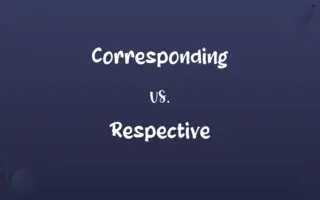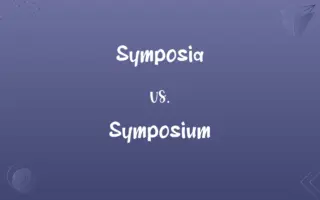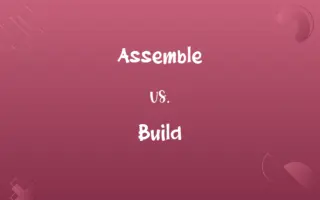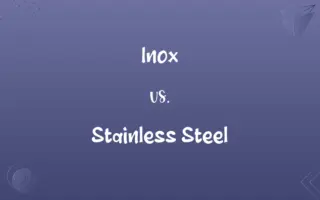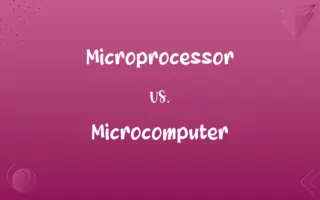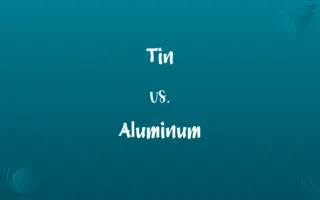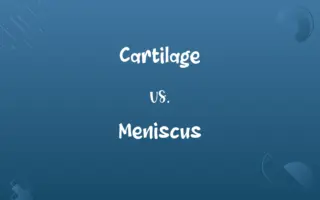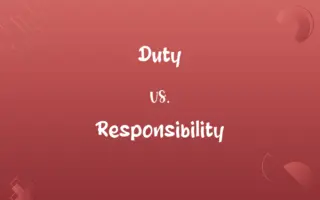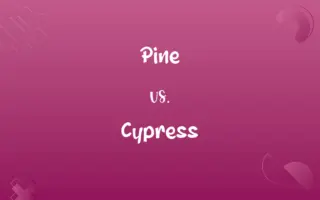dispose() in C# vs. finalize() in C#: Know the Difference

By Shumaila Saeed || Published on February 26, 2024
dispose() in C# is a method for releasing unmanaged resources manually, while finalize() is called by the garbage collector to release unmanaged resources automatically.
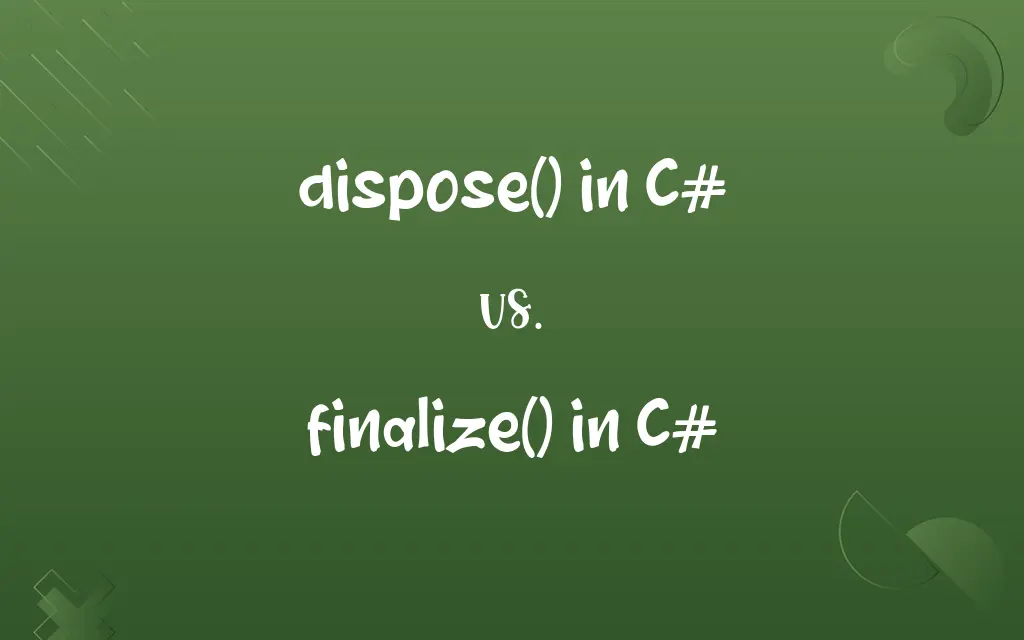
Key Differences
In C#, dispose() is part of the IDisposable interface, used to explicitly release unmanaged resources like file handles or database connections. It is called manually in the code. Conversely, finalize() is a destructor method automatically invoked by the garbage collector to clean up unmanaged resources that are no longer in use, typically when the object is being collected.
Shumaila Saeed
Feb 26, 2024
dispose() provides deterministic finalization, meaning the developer has control over when resources are released. This method is important for managing limited resources efficiently. In contrast, finalize() provides non-deterministic finalization as it is executed at an unspecified time when the garbage collector decides to reclaim the object.
Shumaila Saeed
Feb 26, 2024
Implementing dispose() is a best practice for classes that use unmanaged resources. It allows for better resource management and system performance. Finalize(), on the other hand, serves as a safety net to clean up resources in case dispose() was not called, but relying solely on finalize() can lead to delayed resource release and potential performance issues.
Shumaila Saeed
Feb 26, 2024
In C#, it's common to implement dispose() and call GC.SuppressFinalize(this) within it. This practice prevents the garbage collector from calling finalize(), optimizing resource management. finalize() is usually overridden only in scenarios where dispose() might not be called due to exceptional circumstances.
Shumaila Saeed
Feb 26, 2024
dispose() is explicitly called by the user or within a using statement which ensures its execution even if an exception occurs. finalize(), however, is implicitly called and can lead to unpredictability in resource deallocation, thus not recommended for managing resources that need timely release.
Shumaila Saeed
Feb 26, 2024
ADVERTISEMENT
Comparison Chart
Invocation
Manually by the programmer or using a using block
Automatically by the garbage collector
Shumaila Saeed
Feb 26, 2024
Purpose
To release unmanaged resources explicitly
To release unmanaged resources as a safety measure
Shumaila Saeed
Feb 26, 2024
Control
Deterministic, controlled by the developer
Non-deterministic, controlled by the garbage collector
Shumaila Saeed
Feb 26, 2024
Best Practice
Recommended for efficient resource management
Used as a backup, not recommended for primary resource management
Shumaila Saeed
Feb 26, 2024
Garbage Collector Interaction
Calls GC.SuppressFinalize() to prevent finalize()
Runs when GC identifies an object as no longer needed
Shumaila Saeed
Feb 26, 2024
ADVERTISEMENT
dispose() in C# and finalize() in C# Definitions
dispose() in C#
Used to free resources manually before an object is garbage collected.
The stream's dispose() method was called to release the file resource immediately.
Shumaila Saeed
Jan 24, 2024
finalize() in C#
Acts as a fallback for resource cleanup if dispose() is not called.
The object's finalize() method was invoked as dispose() was not used.
Shumaila Saeed
Jan 24, 2024
dispose() in C#
A way to optimize resource usage and application performance.
Dispose() was implemented to enhance the performance of the application by managing resources.
Shumaila Saeed
Jan 24, 2024
finalize() in C#
A destructor method called by the garbage collector.
The finalize() method was overridden to clean up unmanaged resources.
Shumaila Saeed
Jan 24, 2024
dispose() in C#
Part of the IDisposable interface for resource management.
Implementing dispose() ensured timely release of file handles.
Shumaila Saeed
Jan 24, 2024
ADVERTISEMENT
finalize() in C#
Used for non-deterministic release of resources.
Finalize() ensured the release of resources when the object was no longer in use.
Shumaila Saeed
Jan 24, 2024
dispose() in C#
A method to explicitly release unmanaged resources.
The dispose() method was used to close the database connection.
Shumaila Saeed
Jan 24, 2024
finalize() in C#
Automatically invoked when an object is garbage collected.
The garbage collector called finalize() to free unmanaged resources of the defunct object.
Shumaila Saeed
Jan 24, 2024
dispose() in C#
Ensures deterministic cleanup of resources.
Dispose() was called in a using block for automatic resource cleanup.
Shumaila Saeed
Jan 24, 2024
finalize() in C#
Less efficient for managing timely resource release.
Relying on finalize() led to delayed resource cleanup, affecting application performance.
Shumaila Saeed
Jan 24, 2024
Repeatedly Asked Queries
When should dispose() be used?
When you need to explicitly release resources, like in file or network operations.
Shumaila Saeed
Feb 26, 2024
Can dispose() prevent finalize() from being called?
Yes, calling GC.SuppressFinalize() in dispose() can prevent finalize().
Shumaila Saeed
Feb 26, 2024
What is dispose() in C#?
It's a method to manually release unmanaged resources.
Shumaila Saeed
Feb 26, 2024
Is it necessary to implement both dispose() and finalize()?
It's common to implement dispose() but finalize() is often optional.
Shumaila Saeed
Feb 26, 2024
What happens if dispose() is not called?
Resources may not be released promptly, leading to memory leaks.
Shumaila Saeed
Feb 26, 2024
What does finalize() do in C#?
It's a destructor called by the garbage collector to clean up resources.
Shumaila Saeed
Feb 26, 2024
Is finalize() automatically called?
Yes, it's automatically called by the garbage collector.
Shumaila Saeed
Feb 26, 2024
How does finalize() affect performance?
Overreliance on finalize() can lead to performance issues due to delayed resource cleanup.
Shumaila Saeed
Feb 26, 2024
When is finalize() called in the object lifecycle?
During garbage collection, when the object is no longer referenced.
Shumaila Saeed
Feb 26, 2024
Can dispose() be called multiple times?
It's safe to design dispose() to be called multiple times without adverse effects.
Shumaila Saeed
Feb 26, 2024
How does dispose() interact with managed resources?
dispose() can be used to release both managed and unmanaged resources.
Shumaila Saeed
Feb 26, 2024
What is the IDisposable interface?
An interface that includes the dispose() method for resource management.
Shumaila Saeed
Feb 26, 2024
What pattern is commonly used with dispose()?
The Dispose Pattern, often combined with the using statement.
Shumaila Saeed
Feb 26, 2024
Are there any alternatives to finalize()?
Using dispose() along with using statements is a preferred alternative.
Shumaila Saeed
Feb 26, 2024
Is finalize() part of object finalization?
Yes, it's involved in the finalization phase of an object's lifecycle.
Shumaila Saeed
Feb 26, 2024
Can finalize() be overridden?
Yes, you can override finalize() for custom cleanup logic.
Shumaila Saeed
Feb 26, 2024
Is dispose() part of garbage collection?
No, it's separate and used to release resources before garbage collection.
Shumaila Saeed
Feb 26, 2024
Does finalize() need to call the base class's finalize?
Yes, it should call the base class's finalize() method.
Shumaila Saeed
Feb 26, 2024
What is deterministic finalization in C#?
It refers to explicit resource management, typically done using dispose().
Shumaila Saeed
Feb 26, 2024
What are the best practices for implementing dispose()?
Implementing dispose() in accordance with the Dispose Pattern is recommended.
Shumaila Saeed
Feb 26, 2024
Share this page
Link for your blog / website
HTML
Link to share via messenger
About Author
Written by
Shumaila SaeedShumaila Saeed, an expert content creator with 6 years of experience, specializes in distilling complex topics into easily digestible comparisons, shining a light on the nuances that both inform and educate readers with clarity and accuracy.








